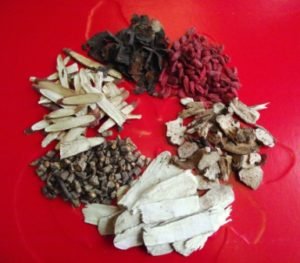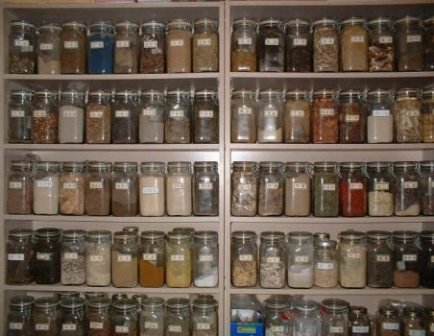What is TCM Herbology?
Here in North America, many people know acupuncture and use the term as a synonym for Chinese medicine. Another less known but very important technical branch of TCM is herbology or herbalism. There are now over 10,000 documented herbal ingredients. About 300 of them are used in daily practise. Over majority of the ingredients are plant origin and a small percentage is from animal and mineral sources. Any part of the plant could be used in herbal medicine, the roots, stems, branches and twigs, vine, leaves, bark, flowers, fruits, and seeds, etc. but different parts may serve different healing purposes.
History and Theories
There are 5000 years of history of using herbs, the first 2500 years are empirical and theories started to evolve from the 4th century BC. The legend says that Shennong, the Devine Farmer and one of the creators of Chinese civilization, discovered herbal medicines. He was supposedly poisoned 70 times in a single day during the process. In fact, the masses detected therapeutic properties of the herbs by trial and error and the scholars made note of the knowledge into books. We humans are energetic entities and the natural energies contained in herbs can help us to restore our equilibrium. The following are the general theories that herbs have:
Four Properties: hot, warm, cold, cool (and neutral);
Five Tastes: sour, bitter, sweet, spicy, salty (and bland):
Four directions: ascending, descending, floating, sinking (and centering):
Herbs work on their targeted organs and body parts reaching through acupuncture channels. The colors, shapes and texture of herbs have influences on their therapeutic functions.
Most importantly, each herb has one or several therapeutic functions.
Forms of formulas
Different from any other herbal traditions which use exclusively single herbs, Chinese herbology uses almost always a combination of ingredients for optimal synergy. The most common way is to boil the herbs and drink the solution. For convenience, formulas are compressed into pills or in capsules. We’ll have a separate video on how to brew herbs.
Strengths of TCM Herbology
 This system of healing is good for a greater range of diseases and disorders, or simply promoting health and longevity. It is particularly effective for chronic internal problems, such as low immunity, cancer, digestive disorders, auto-immune conditions, hormonal imbalances, infertility, PMS, menopausal symptoms, and skin problems,
This system of healing is good for a greater range of diseases and disorders, or simply promoting health and longevity. It is particularly effective for chronic internal problems, such as low immunity, cancer, digestive disorders, auto-immune conditions, hormonal imbalances, infertility, PMS, menopausal symptoms, and skin problems,

